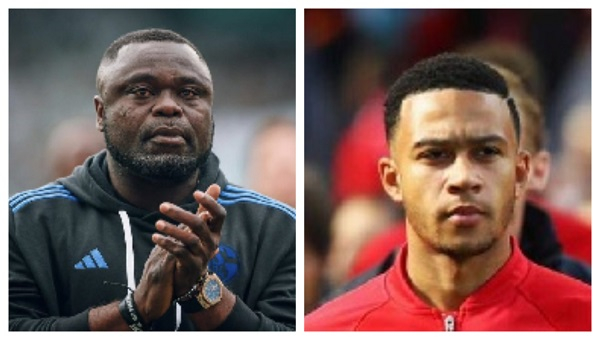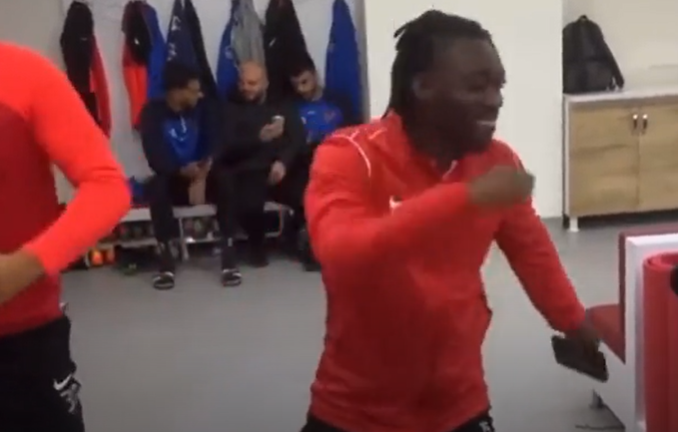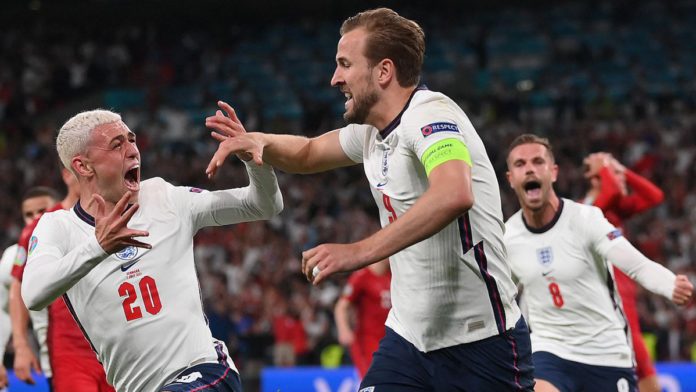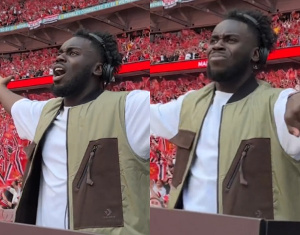10 deals that prove the transfer market has gone crazy
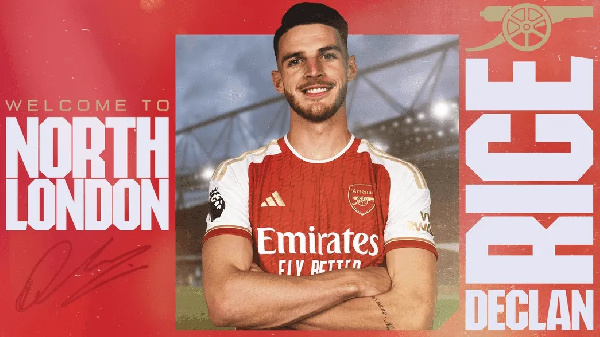
So, when it was confirmed that the Reds had bid a staggering £110m ($140m) for Moises Caicedo, some supporters from rival clubs cheekily asked if Klopp was about to resign.
Addressing that infamous vow, the German admitted that it wasn’t the first time he had said something he later regretted – and probably wouldn’t be the last. However, as well as pointing out that Liverpool were still trying to live within their means (unlike many other clubs), he also acknowledged that “the market is obviously crazy” and that he and his bosses were sometimes obliged to pay big fees in order to sign players that can help the club continue challenging for trophies.
Of course, one could argue that the transfer market has been out of control for some time now, because of ‘The Neymar Effect’, with Paris Saint-Germain’s genuinely shocking decision to meet the €222m (£190m/$242m)) buy-out clause in the Brazilian’s Barcelona contract – something the Blaugrana understandably considered unthinkable – creating a knock-on effect that saw several world-class talents switch clubs for colossal fees. It’s worth noting that nearly all of those deals proved disastrous, primarily because they made no sense.
However, what we’re seeing now is different, even more illogical. Indeed, as GOAL illustrates with the ridiculous deals listed below, in 2023, inexperienced, unproven players are moving for mad money, meaning Klopp is quite correct: the transfer market has now completely lost its mind…
10Harry Kane (Tottenham to Bayern Munich, £100m)
Harry Kane was always going to command a colossal fee if ever he left Tottenham. So, the fact that he’s finally gone for more than £100m ($127m) is no great shock. He’s a world-class player, and has been for years.
However, the reason why Kane has been included on this list is the identity of the buyer. Bayern Munich are the richest club in Germany by some distance. They’ve a well-earned reputation for nicking their rivals’ best players. They have also occasionally spent big in the past – most notably on Lucas Hernandez, whom they paid a staggering €80m for in 2019. However, Bayern have always prided themselves on being relatively prudent in relation to the other members of Europe’s elite.
Remember, former CEO Karl-Heinz Rummenigge famously claimed that Bayern would never have paid €100m for a 33-year-old Cristiano Ronaldo – as Juventus did in the summer of 2018. The legendary Lothar Matthaus also claimed just a few months ago that Kane was “too expensive and too old” for his former club.
So, when you see Bayern going out and paying €117m for a 30-year-old Kane, who has a long history of injury issues, because of their desperation to sign a proven goalscorer, you know that the transfer market really has gone mad.
9Enzo Fernandez (Benfica to Chelsea, £107m)
Enzo Fernandez was hot property after the 2022 World Cup – and rightly so. The midfielder was immense as a Lionel Messi-inspired Argentina triumphed in Qatar, with Lionel Scaloni’s decision to bring Fernandez into his starting line-up having a transformative effect on the team.
Benfica are a selling club – and a quite brilliant one at that – but they had no intention of cashing in on Fernandez until the end of the 2022-23 season, particularly as they still had the knockout stages of the Champions League to look forward to.
Club president Rui Costa was also confident of holding onto Fernandez for two reasons. Firstly, they weren’t stuck for cash, having sold Darwin Nunez to Liverpool the summer before for a whopping £64m. Secondly, Fernandez’s buy-out clause was €121m (£107m/$131m) – Benfica understandably didn’t expect any club to come close to matching that figure. Enter Chelsea.
Todd Boehly & Co. made it clear to the player and his representatives that they were actually willing to meet the buy-out clause if an agreement could be reached, which resulted in Fernandez kicking up such a storm that Costa gave up trying to negotiate a deal whereby the 22-year-old would have stayed at Estadio da Luz until the end of the season before leaving for a smaller sum.
The former Portugal midfielder subsequently admitted that he was disgusted by Fernandez’s conduct during the negotiations – but the British-record fee he banked for a player that Benfica had bought just over six months previously for €10m certainly took the edge off his departure.
A new manager and an overhauled midfield should allow the World Cup winner to flourish at Stamford Bridge this season, but there’s no getting away from the fact that Chelsea, in their haste to wrap up a deal, paid far too much for Fernandez.
8Mason Mount (Chelsea to Manchester United, £60m)
Nothing about the Mason Mount deal adds up. He obviously boasts a versatility that could prove useful to Manchester United boss Erik ten Hag. But was he an essential buy? In no way, shape or form.
United are well stacked in every attacking position bar No.9. So, £60m ($76m) was quite the outlay on a player that the club didn’t badly need, particularly when one considers that there were superior attacking midfielders available for far less. World Cup winner Alexis Mac Allister had a £35m ($45m) buy-out clause in his Brighton contract, while Leicester were willing to let James Maddison go for only £40m ($51m).
So, why on earth did United feel the need to invest even more money in Mount, who lost his Chelsea and England starting spots during a rotten 2022-23 campaign that featured just three goals in 35 appearances across all competitions?
United have made a big gamble on Mount rediscovering the form that marked him out as a decent Premier League player two years ago.
7Kai Havertz (Chelsea to Arsenal, £65m)
Kai Havertz scored one of the most precious goals in Chelsea’s history but still proved a colossal waste of money, never coming close to living up to his £62m ($79m) fee. And yet, the Blues somehow ended up making a £3m ($3.8m) profit on a 24-year-old that Mauricio Pochettino immediately deemed surplus to requirements at Stamford Bridge.
Arsenal’s acquisition really was bizarre. Mikel Arteta evidently believes that Havertz can excel in a deeper role, having managed just 19 goals in 91 appearances for Chelsea in a more advanced position.
Havertz has many attacking attributes. He would have been worth a gamble for a fair fee. But the Gunners weren’t short of quality or creativity in midfield as it was, so it’s extremely difficult to work out why they felt compelled to spend so much money on a player that even Germany haven’t worked out where to deploy.
6Romeo Lavia (Southampton to Chelsea, £58m)
Twenty-nine Premier League appearances – that’s all it took to convince Liverpool and Chelsea to get into a bidding war over Romeo Lavia.
Liverpool had a fee of around £40m ($51m) in mind for the 19-year-old, whom they viewed as a long-term solution to their defensive midfield problem, but the Merseysiders had no intention of meeting Southampton’s £50m ($64m) asking price.
However, things changed after they allowed both Fabinho and Jordan Henderson to move to Saudi Arabia, and then saw Chelsea trump their £110m bid for Brighton’s Moises Caicedo. The Reds then tried – and, even more gallingly, failed – to make the ultimate panic buy.
Liverpool also losing Lavia to Chelsea is obviously a major problem for manager Jurgen Klopp, given he remains without a specialist No.6. But there’s simply no getting away from the fact that the Reds were right about the fee: Lavia is not worth £50m – let alone £58m ($74m).
He is a player of great potential – and he could realise it at Stamford Bridge – but let’s not forget that he was the defensive midfielder in a team that got relegated after conceding 73 goals. It’s also worth pointing out that Pep Guardiola was willing to let him leave Manchester City because he knew that the midfielder wouldn’t get much game time at the Etihad Stadium.
It is utterly bizarre, then, that just a year later both Chelsea and Liverpool were willing to pay quite so much money for Lavia on the basis of those 29 Premier League appearances…
5Rasmus Hojlund (Atalanta to Manchester United, £73m)
Many Danish coaches and pundits who have been following Rasmus Hojlund’s career closely since he made his professional debut at 17 were astounded by Manchester United’s decision to pay an initial £64m ($83m) for Hojlund this summer – and a potential £9m ($11m) in add-ons. After all, FC Copenhagen had decided to cash in on the striker in 2022, by selling him to Sturm Graz for €1.8m (£1.5m/$2m), because they didn’t believe he was good enough to become a starter at Parken Stadium.
Hojlund has, of course, improved enormously since then and Serie A supporters will tell you that the 20-year-old showed serious promise at Atalanta last season – but he still only scored nine league goals. It was a commendable tally for one so young, but in no way suggested that Hojlund is the new Erling Haaland, which is what he is now being unfairly – but inevitably – labelled after joining the Norwegian in Manchester.
To make matters worse, there is already talk of an injury issue being more serious than first reported and there just wouldn’t have been the same level of scrutiny surrounding a young player had United not paid such a significant sum of money for his services. Hojlund is under enough pressure as it is to score goals, without also having to prove is no crock.
He clearly has the makings of a top No.9. He’s already shining for Denmark at international level. But the fee is outrageous and only likely to be used as a stick with which to beat Hojlund if he doesn’t prove a massive – and instant – hit at Old Trafford.
4Declan Rice (West Ham to Arsenal, £105m)
The best possible example of ‘The English Tax’. Declan Rice is a very competent and versatile defensive midfielder. He’s already proven that at Euro 2020, and in the Premier League. Arsenal’s interest also made perfect sense. Rice is exactly the kind of player that Mikel Arteta’s midfield lacked during last season’s title bid.
However, the comparisons made with Premier League great Roy Keane, who joined Manchester United for a British-record fee in 1993, are absolutely farcical, while Rice has nowhere near as many attributes as Newcastle’s £60m summer signing Sandro Tonali.
So, the fact that Arsenal had to pay a nine-figure fee for Rice tells you everything you need to know about the distorted value of English Premier League players – you really can get away with adding on about 25 percent of their true worth. Just as West Ham did with Rice, whose offensive limitations are always brutally exposed whenever he is asked to play further forward.
3Malcom (Zenit to Al-Hilal, €60m)
In truth, we could have allocated a slide to any number of players that have been snapped up by Saudi Pro League clubs this summer. No European club would have even considered matching the money Saudi clubs have coughed up for the likes of Neymar, Fabinho, Riyad Mahrez and Ruben Neves in terms of transfer fees and wages, which is why all of those players have moved to the Middle East.
However, the deal probably best sums up the country’s insane spending spree is Al-Hilal’s signing of Malcom for €60m (£51m/$65m), given the 26-year-old has nothing like the talent or status of fellow summer signing Neymar.
Malcom was coming off the back of a fine season at Zenit, whom he helped win the Russian title with 23 goals in 27 games, and was capped by Brazil during the off-season. But it’s not as if top teams were lining up to sign one of the biggest flops in Barcelona history.
Malcom has hit the ground running at Al-Hilal, scoring a hat-trick on his debut, but that tells you everything about the standard of play in the Saudi Pro League and nothing about his true value.
2Mykhailo Mudryk (Shakhtar Dontesk to Chelsea, £89m)
Arsenal were furious when Chelsea hijacked their deal for Mykhailo Mudryk during the January transfer window. In truth, though, their London rivals did them a massive favour.
Mudryk looked an exciting prospect at Shakhtar Donetsk. ‘The Ukrainian Neymar’ was quick and immensely skillful, but grossly overpriced, with Chelsea agreeing to pay £62m up front, and a potential £27m in add-ons.
After all, Mudryk was by no means a certain starter for his national team, while he had only just begun scoring goals on something resembling a regular basis for Shakhtar. There were still some serious doubts over his finishing and final product based on his 65 previous appearances at senior level. Those fears have since been realised at Stamford Bridge, with Mudryk still waiting for his first Chelsea goal, and spending most of his time sitting on the bench.
At 22, Mudryk could yet come good in west London but, right now, he is doing nothing but highlight the inherent risk in the Blues’ policy of giving lucrative, long-term contracts to young, inexperienced players.
1Moises Caicedo (Brighton to Chelsea, £115m)
Caicedo is a tremendous prospect. The Ecuadorian is 21 years old, has already played and scored in a World Cup and, last season, was integral to Brighton qualifying for Europe for the first time in the club’s history. It honestly didn’t come as a surprise to see Arsenal try to sign him in January, or Liverpool and Chelsea vying for his signature this summer. However, the final fee is just ludicrous.
Chelsea’s policy is to buy the most promising players in the world and tie them down to long-term contracts with a view to constructing a squad that can dominate the game for years to come – but they’ve decided to pay a Premier League-record fee for a player that has made just 45 appearances in England’s top flight. And let us not forget that Klopp’s Liverpool were willing to do likewise, so desperate are they to sign a decent defensive midfielder.
Nobody is disputing the fact that Caicedo could become a world-class player, but he’s not yet come close to showing that he is capable of producing top-quality performances on a consistent basis at the very highest level – because he’s only played 45 Premier League games.
And the argument that ‘the market dictates the price’ doesn’t really apply here, because Newcastle have just signed Tonali, an Italy international who helped AC Milan reach the semi-finals of last season’s Champions League, for approximately half the money.
At the end of the day, though, Chelsea only have themselves to blame here by inflating the market with their January acquisition of Fernandez, as it’s believed that Brighton used that deal as a point of reference when setting their fee for Caicedo.
Boehly & Co. don’t seem to care, of course. Chelsea’s owners appear to be willing to make transfers happen at all costs – and with people adopting such a wild approach to player recruitment, there appears little chance of the transfer market regaining any semblance of sense any time soon.
Source: goal.com


